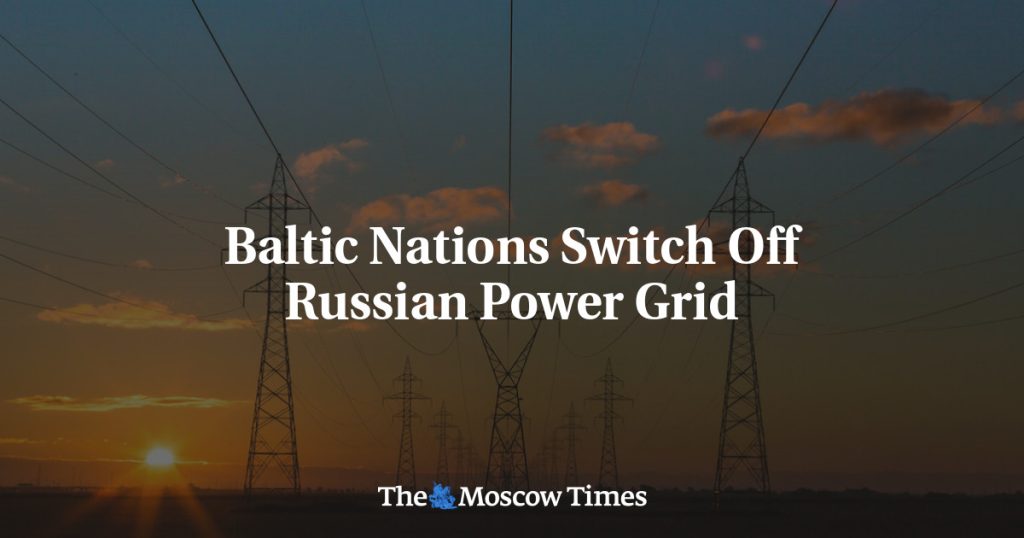A Historic Move: The Baltic States Disconnect from Russia’s Power Grid
On Saturday, Estonia, Latvia, and Lithuania, three Baltic states and former Soviet republics, took a significant step toward energy independence by disconnecting from Russia’s power grid. This move, years in the making, was accelerated by Russia’s invasion of Ukraine in 2022, which heightened concerns about energy security and geopolitical coercion. The Baltic states, now members of the European Union (EU) and NATO, have long sought to reduce their dependence on Russia, particularly after Moscow’s aggressive actions in the region.
The disconnection marks the end of a process known as "synchronization," which aims to integrate the Baltic states’ power grids with the EU’s energy network. This historic shift was celebrated by European officials, with European Commissioner for Energy Dan Jorgensen calling it a "historic day" and emphasizing the importance of energy security. "No European country should be dependent on Russia for anything," he said. Lithuanian Energy Minister Zygimantas Vaiciunas also highlighted the strategic significance of the move, stating that it eliminates any possibility of Russia using energy as a weapon against the Baltic states.
The Disconnection Process and Its Significance
The disconnection process was completed at 9:09 a.m. local time, with Latvia physically cutting a power line to Russia. Latvian Energy Minister Kaspars Melnis symbolically held up a piece of the dismantled wire, signaling the end of reliance on Russian energy systems. The Baltic states will now operate in "isolated mode" for approximately 24 hours to test their energy stability before fully integrating with the European grid on Sunday.
This move is not just a technical adjustment but a geopolitical statement. For decades, the Baltic states’ power grids were interconnected with Russia and Belarus, leaving them vulnerable to potential manipulation. The invasion of Ukraine in 2022 served as a stark reminder of the risks of dependence on Russian energy, prompting the Baltics to accelerate their decoupling efforts. The synchronization project, which required an investment of 1.6 billion euros (mostly from EU funds), ensures that the region can now operate independently and securely within the European energy framework.
Russia’s Role and the Impact on Kaliningrad
Despite initial concerns about potential sabotage or disruption, the disconnection process reportedly proceeded smoothly, with Russia cooperating fully. Latvian grid operator AST noted that no disruptions were recorded, and Lithuanian officials acknowledged that Russia had taken necessary steps to ensure the stability of its own energy systems. However, the decoupling has significant implications for Kaliningrad, a Russian exclave located between Lithuania and Poland.
Kaliningrad, which has no direct land border with mainland Russia, had previously relied on the Baltic states’ power grid for part of its energy needs. Following the disconnection, the region will no longer have a direct grid connection to mainland Russia, forcing it to rely more heavily on its own power generation capabilities. While Kremlin spokesman Dmitry Peskov dismissed concerns about Kaliningrad’s energy security, the region has been intensifying its domestic power production for years to prepare for such a scenario.
Security Measures and Future Integration
The Baltic states are taking no chances in ensuring the security of their energy infrastructure. In Estonia, police and volunteer defense corps are manning critical electrical infrastructure until next weekend, while Lithuania has conducted military drills near its border with Poland to secure the energy link. Poland’s power grid operator has also deployed helicopters and drones to monitor the connection with Lithuania. These measures reflect the region’s heightened vigilance amid concerns about hybrid warfare and potential sabotage.
The integration of the Baltic states’ power grids into the European network is expected to be fully completed by Sunday. This move not only strengthens the region’s energy security but also deepens its integration into the EU, further distancing it from its Soviet-era ties. As European Commission President Ursula von der Leyen emphasized, this achievement underscores the EU’s commitment to supporting its member states in building a secure and independent energy future.
In conclusion, the Baltic states’ disconnection from Russia’s power grid is a landmark moment in their journey toward energy independence and geopolitical resilience. It highlights the region’s determination to protect its security and stability in the face of external threats, while also reinforcing its alignment with the European Union. As the Baltics look to the future, this move sets the stage for a more integrated and secure energy landscape, free from the shadows of Russian influence.












